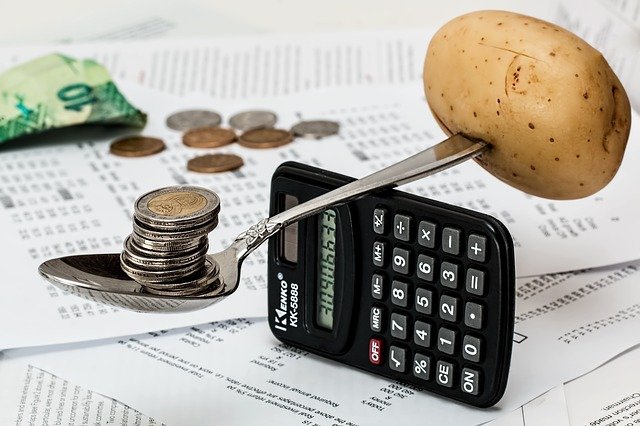
Money: Do you manage it or does it manage you?
There are a lot of self-help gurus out there who would like to sell you on the idea that you can “think yourself rich” or Tony-Robbins your way to wealth. And when it comes to “money management,” there are plenty of resources available for high-level money management — investing, philanthropy, endowments, real estate brokerage, etc. — but really… Is that helpful? The people who want to do those high-level things – who can afford to do those things – typically also can afford to access professionals who can guide them in growing their money. So the self-help-ers aren’t helping the people who, y’know, actually need help.
SO: What about the rest of us?
What about those of us who work too much but also spend too much? Those of us who want to plan for our futures but had nobody behind us who planned for their futures, so we have no baseline from which to work? (My parents can’t be the only ones who are broke in retirement.) What about those of us whose first reaction to practical financial suggestions is to think things like, “I can’t afford to buy insurance” but don’t stop for a moment to give it a second thought and realize, “I can’t afford to NOT have insurance.”
What about those of us who are barely getting by? (And why is that? Where on earth does the paycheck GO?) Or those of us who appear – from the outside – to “have it all” . . . when what we really have is up-to-the-neck debt?
There’s a lot to be said for money management. Unfortunately, too much is often said about high-reach ends that don’t apply to most of us. And not enough is said about everyday decisions that make or break the layperson’s budget.
There’s also not enough honest talk about money in the general sense. We learn (if we learn) about what to do with money from watching our parents and from taking life’s punches on the chin; generally speaking, it’s not something we formally educate our children about or – culturally speaking – are even allowed to discuss. It’s bad form. Or some such bullshit.
Well guess what?
I’ve had to learn the hard way how to manage my money. (Because I was sick to death of my money – or lack thereof – managing me.) Not in an investments-and-taxes way (though I’ve gotten really good at the taxes bit over the years), but in a This Is Real Life kind of way.
And I’m “bad form” enough to tell you about it.
FAIR WARNING: This is a long one. Feel free to skip through to view whichever headings interest you -or- if it’s a triggering topic or you just don’t have time: feel free to skip it altogether. 🙂 Also — I’m not an expert and don’t pretend otherwise; these are simply my opinions and experiences and are in no way intended to represent The Only Way.
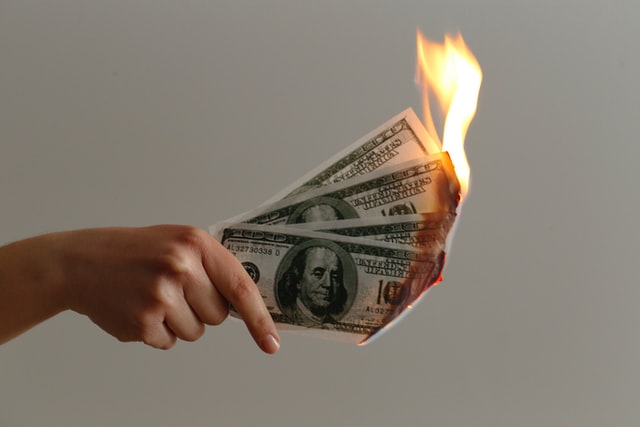
Money To Burn
One thing I’ve had to learn — the hard way — in my life where finances are concerned is that there is no such thing as “money to burn.”
It shocks me — though it shouldn’t, with as much as I’ve witnessed it in my life — how many people believe that if there is money in their pocket, they should spend it. Or that if there is a positive balance in their checking account, they should spend it. Or that if there is a raise in salary coming, they should spend it.
For a great many people, the problem is NOT that they don’t earn money.
They don’t have an earning problem.
They have a SPENDING problem.
For example: Jo Blo just got paid. After depositing his check, he pays the bills that are due this week and buys groceries. When those things are taken care of, he has $300 left in his checking account. “Cool!” he thinks. “I can buy that $200 Fantasy Football Fuckheads limited edition jersey I’ve been wanting!”
So he does. And WOOT! He’s still got $100 left.
And then… oh dear… his check engine light comes on in his car on his way to work Monday. Taking it to the garage is going to cost money. And on Thursday he receives a letter in the mail from his bank informing him of an overdraft because his every-six-months autopay for his gym membership came through for $248 and he only had $100 available in his account. And oh shoot… The next round of bills just arrived and one of them is due before his next payday.
Which means now he has to use a credit card to cover the car repair (finance charges + interest + repair expenses = rapidly and unnecessarily accumulated debt), he’ll have to pay an overdraft charge to the bank, and he’ll accrue a late fee on that bill he can’t pay on time.
Is ^that^ a simplistic example? YES.
Is it unusual? NO.
Paycheck-to-paycheck mentality is a real thing. Thinking you can spend money (‘burn’ money) just because it’s there is a mistake real people make. And they make it on every level.
If, instead of seeing $300 on the ledger line and thinking, “I can buy something!” — if instead, Jo Blo left that money alone (and did so on a regular, paycheck-to-paycheck basis, so as to have a nice sized cushion on that ledger line to account for The Unexpected), they would have been fine.
And also — OBVIOUSLY — if they had a real idea of what their basic budget was (income vs expenses), they would be better situated.
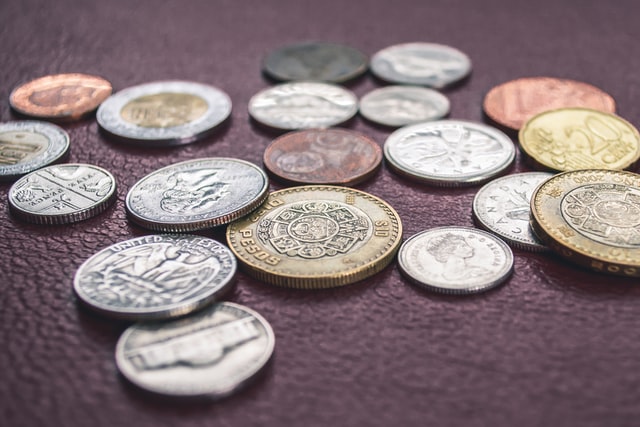
Do you have a REAL idea of what your budget is?
Jo Blo’s problem — one of them at least — is that they don’t have a concrete idea of where their money is going.
On the most basic level, understanding your budget means understanding how much money you are earning/receiving compared to how much money you are spending. It’s also understanding that just because there is ‘extra’ money on the ledger this week does NOT mean it’s actually ‘extra’. It’s understanding that that money is likely going to be needed — somewhere, for something — further down the line.
I’m going to use some real numbers here, from my own budget (December 2020) to show you what I mean:
NET INCOME (take-home pay) for Feve’s Domain in December 2020:
- Regular income = $5,435.55
- Bonus = $77.87
- Trade Credits = $23.20
- Total Dollars IN = $5,536.52
EXPENSES for December 2020:
- Mortgage = $1,677.94
- Utilities = $65.98
- Communications Bills = $178.04
- Transportation Expenses = $334.00
- Car Payments = $450.00
- Groceries = $773.95
- Clothing = $301.49
- Gifts = $183.06
- Postage = $46.90
- Misc Household Purchases = $24.39
- Credit Card Payment = $100.00
- Discretionary Spending (Allowance) = $170.00
- Money Put Towards Our New Business = $270.47
- Total Dollars OUT = $4,576.22
INCOME minus EXPENSES:
- $5,536.52 – $4,576.22 = $960.30
- Total Money Available at Month’s End = $960.30
So I have almost $1,000 to play with, right?! WOOT!
Um, NO. No, I don’t.
Because this is December’s budget numbers. Which means that January — the month we are currently in, as of this writing — needs to be planned for. And January is always always a lean month for us, income-wise. And January brings property tax bills that must be paid before February 15th. And February will bring tax filing time — complete with a federal income tax bill that will have to be paid by April 15th — and since February is a short month, it’s lean too. So that $960.30 that looks so fat and juicy is actually going to have to cover some soon-to-be-arriving obligations; it’s not fat or juicy after all — in fact, it’s stretched thin and rather dry; it will be a big fat $0.00 in no time.
It’s tempting to see that money sitting there though and say, “Let’s plan a weekend getaway!” (Well… Nobody is planning weekend getaways these days thanks to the Coronapocalypse, but let’s pretend for a moment that it’s not Armageddon.)
And I could do that. I could.
But I won’t.
Because if I did, I’d be wearing Jo Blo’s shoes in no time. And those shoes are NOT comfortable.
And speaking of shoes…
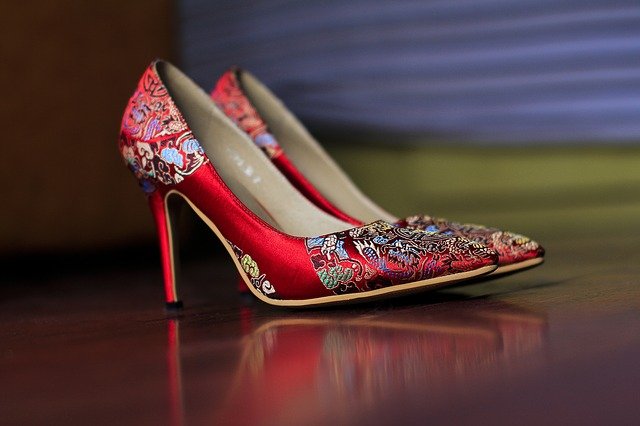
…but I LIKE to buy things…
Of course you do!
I do too. (You’ll notice I spent a good deal of money on clothing in December.)
I’m not saying you shouldn’t buy things. I’m just saying you have to be aware of your (REAL) budget before you spend.
You should also be realistic about your own habits.
I — for example — have a thing for coffee.
And while I have a perfectly good drip coffee maker sitting on my kitchen counter, it’s just not the same drinking decaf black as it is sipping a white chocolate mocha made to order. Since the latter is my preference, but I’m not wild about spending oo-gobs of money on a daily indulgence, I’ve figured out a way to get my coffee without spending real money on it. (I’ll explain in detail another time if you’d like, but the long and short of it is: I’m a consumer panelist and the surveys I take get paid out in gift cards. Hello, Starbucks!)
I also like to buy clothes and shoes, which I try to do through secondhand outlets when possible (ThredUP has been one of my favorite online finds of the past 10 months) and I have the discipline to only spend within my means. I also recycle my “nope, not gonna wear that again” closet items by trading them (think: Buffalo Exchange, Plato’s Closet, traditional consignment shops) to stretch my dollar (or put money in my pocket), donating them (Goodwill is the most transparent NPO I know of for this), or giving them away to friends/family who will use them.
When I shop regular outlets, I use coupons. I purchase things on sale (full price is an anathema to me!), I look for deals, and when forced to buy online, I (almost) never pay for shipping.
So it’s not a matter of not spending ANYTHING.
It’s a matter of not spending beyond your budget.
Which ultimately comes down to discipline.
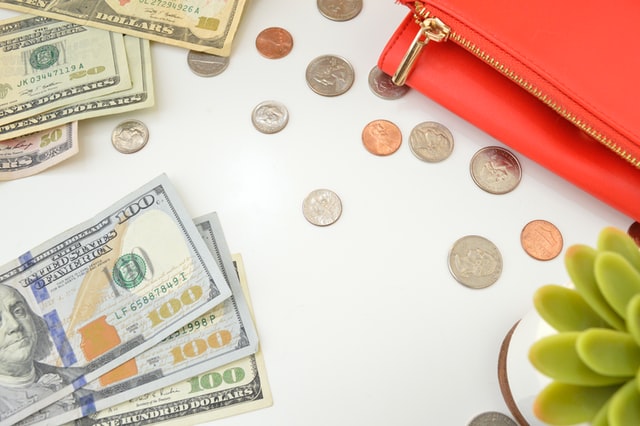
Discipline
Learning how to be disciplined about money — about saving it, about not spending it just because it’s there, about keeping it instead of burning it — is not something I can teach you. You either have it or you don’t. And if you don’t: you’re either willing to force yourself to it or you’re not.
I grew up with parents who never had any money. And when they did have money, it disappeared with nothing to show for it. My mom — despite her ability to squeeze blood from pennies in hard times — throws money away when she feels she has an excess of it. My {step}dad thinks like Jo Blo. If there’s a positive balance in the bank, he thinks he has to spend it. So he never has any money (because he spends it all) and even though he’s constantly buying things, he doesn’t have anything *of value*. My parents still have a mortgage. My dad still has a car loan. They still have credit card debt. Because beyond just spending his bank balance, my dad debt-spends himself into consumerist bliss.
So the discipline I have where money is concerned is definitely not something I was taught.
It was something I learned.
You can learn it too. But you have to do what’s going to work for you.
You could try an envelope system. Actually feel the money in your hands and watch it leave your wallet. The visual impact of seeing your money start big and get small is the “…oh…” trigger a lot of people are not clicking to in the age of digital dollars.
Or try setting up a “Don’t Touch” account. Have a portion of your paycheck deposited into a savings account that you commit to NOT accessing. Once the money is in it, you can’t touch it. If you do well with the don’t-touch policy, reward yourself by increasing the amount of don’t-touch money you deposit.
Try saving cash for a large purchase. If you need a new hot water heater (Feve raises her hand), create a little fund that you throw money into over time. Don’t buy your hot water heater until you can pay for it with cash. And when those showers start getting cold, you’ll likely rethink that had-to-have-it designer purse purchase, eh? Priorities!
Discipline comes with practice, and practice requires small steps.
If you’re feeling like your money manages you instead of the other way around, you can change that.
I know you can.
Because I DID.
♥
What life lessons have you learned about money?
What tips and tricks do you use to make sure you’re managing your money instead of letting your money manage you?
(And if you have any questions about anything I shared above, PLEASE ASK. The whole point of this post is to not be secretive. I’m far from perfect and I will gladly tell you what my experiences have been!)


I think that kind of openness really is helpful to people.
Being secretive about what your finances really allow can get a lot of people into trouble as they try to keep up with their peers and get themselves into trouble.
Yes, trouble for sure — the idea of “keeping up” often just means “going into unnecessary debt.”
This a fabulous post Feve. Thank you for sharing so much personal stuff with us.
Money needs to be discussed – and i do realise it is triggering for some people – but the reasons for that may be because it was never talked about in the first place and mistakes were made…
I mentioned in my post about genetics and how i naturally used to spend what i earned – like u mention above – but i learned not to do that. We can all learn – particularly if others can teach us how they got a grip on money. So- Thank you Feve for suggesting this topic and writing so candidly about it
May x
May More recently posted…Money trees ~ where does money come from?
I think you’re right about the secretive-ness being the reason — or one reason — talking about money is/can-be scary.
I only stopped being broke last year – my whole life has been one where I didn’t know where my money went to.
Here is me sharing my story–
my best friend had me sit and list ALL my monthly recurring expenses (bills). Then estimate how much transport, food and toiletries would cost. Then we worked out a weekly budget based on how much money i had left after bills. And i stuck to it – taking out only $150 a week every week for spending. If I wanted something but had no cash, I waited till the start of next week. Often, by then, I didn’t want it anymore.
Eventually things got better, I had enough to pay off credit card debts, and after my final payment of $330 clearing off a 10K loan last December, I decided that I would just give myself some breathing room, and instead of putting aside the whole $330 every month, I would put aside $250. This is the start of that journey towards building a fund. My bank accepts transfers in units of 1000$ for their fixed deposit account. I currently have 2000 in there. And I will dump a thousand in there every 4 months from the accumulated savings of that $250/month.
At least I have a plan now. And some money to spend on cheap shoes. Without having to pay for shipping. *wink*
I did something similar as your friend had you do, only initially all my extra/wasted cash went toward paying off my debt. (I’ll be talking about that soon.) Saving came later for me. (But it came!) It’s quite freeing to be on top of your finances, isn’t it? 🙂
Brilliant post, Feve, and thank you for sharing so elaborately. Your envelope system reminded me of a cousin who did that (I am talking early 90’s) – put money in envelopes and bring it to the places she had to pay. I do believe we all can learn how to be disciplined about our money, if we really want to be. However, I also know of some people who will probably never learn it, because they love spending too much.
~ Marie
I’m old-fashioned. I strongly dislike “digital” EVERYTHING. So I still use cash for a lot of things. It works for me because with cash, when it’s gone it’s gone. You can’t overspend it because when you get down to $0.00, that’s the end! 🙂
A good post!! Money issues were a part of my first divorce—though not a major part… we handle money differently in this marriage.
Money is one of the top reasons couples fight, so you’re not alone in that. I know finances were a problem in my husband’s first marriage. And my parents *still* fight about money.
In relationships… People think about “compatibility” a lot in terms of basic likes/dislikes and basic belief systems before committing. But we carry around beliefs about money that sometimes never get properly discussed — yet those incompatible money beliefs/behaviors destroy relationships.
Pingback: The Money Jar ~ Temperature's Rising